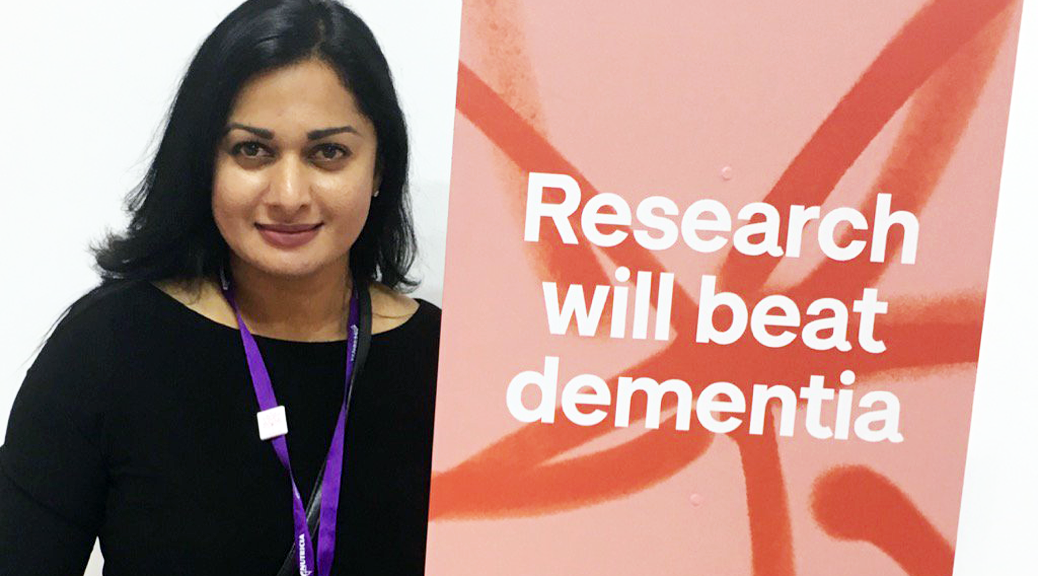
AAIC 2017 reveals great strides in research
By Nalini Sen, Director, Alzheimer Society Research Program
I had the opportunity to attend this year’s annual Alzheimer’s Association International Conference (AAIC) in London, UK. This conference brings together some of the world’s leading researchers and clinicians in dementia treatment, detection and prevention. And with a record number of presentations—3300 in all—I have to admit, I was awestruck. Here are a few takeaways I would like to share with you:
Stress can age your brain
How we manage stress is even more important than was previously thought. Researchers at the University of Wisconsin studied 1320 people who had experienced stressful events like losing a job, getting a divorce or grieving the death of a family member. What did they find? A single stressful experience can age your brain by four years! Their findings reaffirm that healthy lifestyle habits matter.
Your brain needs a good night rest
Getting good sleep is as important as getting enough sleep. In a 516-person study, researchers from Wheaton College found greater instances of beta amyloid deposits in the brains of those with sleep disordered breathing and noticed that these deposits accumulated faster over time. Sleep disordered breathing is common. It includes hypopnea (under breathing) and apnea (not breathing) during sleep. While researchers need to do more investigative work, if we can better treat these sleep disorders, we may be able to reduce the risk of dementia or possibly delay the progression of the disease where it has already occurred.
Other presentations at AAIC reported on advancements in diagnosing dementia, which is a complicated and often a long process:
PET brain scans can improve diagnosis
For example, researchers from Sweden reported a 68 per cent increase in dementia diagnoses when PET brain scans were used in a small test sample of 135 people with memory problems. PET scans help identify whether amyloid plaques, the hallmarks of Alzheimer’s disease, are present in the brain. It does this by injecting a special dye with radioactive tracers into the arm which is then and absorbed by the organs and tissues.
Steps closer to a dementia blood test
In another study, Washington University researchers were able to measure amyloid beta in the cerebrospinal fluid (a fluid in the brain) with 89 per cent accuracy. Amyloid beta and tau protein which accumulate in the brain are triggers for Alzheimer’s disease. While more study is needed, a blood test for dementia may soon become available. This kind of test could identify those at risk of developing Alzheimer’s disease even years before symptoms appear.
One thing was clear at this year’s AAIC conference: Researchers around the world are working diligently to find a cure and identify new ways of diagnosing dementia earlier. And while they continue their search, there is now even more evidence that we can take steps to reduce our risk of developing dementia by living a healthier lifestyle.
Learn more about what you can do to keep your brain healthy at alzheimer.ca/brainhealth.